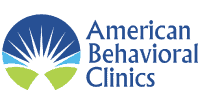
Sleep disorders affect nearly 70 million Americans annually. While insomnia is the most common sleep disorder, there are others. If you are one of these individuals seeing a mental health worker can help.
Insomnia
Up to 50% of the adult population suffers from insomnia. While many think that insomnia is the inability to fall asleep at night, it can also include waking up for long periods in the middle of the night or waking up hours before the alarm goes off. Cognitive behavioral therapy helps many of these individuals.
Narcolepsy
Often described as sleep attacks, people with narcolepsy experience excessive daytime sleepiness and muscle weakness. Often these attacks are preceded by strong emotions. While researchers are not sure why, up to 57% of people with narcolepsy suffer from depression, while another 35% suffer from anxiety. Seeing a mental health worker about your anxiety or depression may help stop narcolepsy.
Restless Leg Syndrome
If your legs keep jerking, making it hard to sleep, you may have restless leg syndrome. The pain can feel like it starts in the lower leg before spreading through one or both legs. About 39% of people with restless leg syndrome also experience depression or anxiety. Therefore, seeing a psychiatrist may help get to the possible root cause of your restless leg syndrome.
Sleep Apnea
Snoring may be a sign of sleep apnea, and this condition can signify deeper underlying health concerns, such as congestive heart failure. People experiencing sleep apnea were more likely than the general population to have depression, suicide ideation, and severe psychological distress. Seeing a psychiatrist can help because they can treat both the person’s mental and physical health since they are also trained medical doctors and can refer you to a sleep specialist if needed.
If you are finding it difficult to get a good night’s sleep, seeing a mental health worker can help. They can help you get to the root of the problem and help you find workable solutions.
Existing Patients and New Patients, Call us to schedule an appointment, get a prescription refill or just to ask a question:
New Patients ONLY - Want to contact us through a form? CLICK HERE to fill out our contact form.





